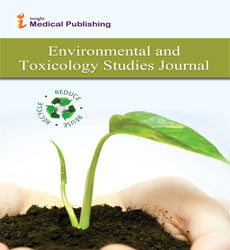Microwave technology for biorefining
Duncan J Macquarrie*
University of York, UK
Received Date: 2022-07-12 | Accepted Date: 2022-07-19 | Published Date: 2022-07-26
Abstract
The requirement to move away from fossil-derived products towards renewables is increasingly critical. This holds both for energy and for chemicals, the vast majority of which are still produced from oil. In the search for alternatives, biomass stands out as a potential replacement in both fields. It is rich in complex chemical structures, which could potentially be converted to a range of chemical products, replacing petrochemicals in a wide range of sectors. It also has the potential to be converted into fuels. As much of biomass is grown as crops, it is important to avoid competing with food production. However, it is also clear that the majority of a food plant is actually inedible (certainly to humans) as it is composed of lignocellulosic material. This non-food component of crops is currently treated as a waste or a low value product, often contributing little to the economic viability of the producers. This presentation will focus on predominantly microwave based routes to deconstruct and valorise this non-food biomass, leading to a range of potential products (chemicals, materials and fuels) which allow the possibility to replace fossil-based products and also improve the financial viability of farming. Case studies will be given of both terrestrial biomass and aquatic (macroalgae) demonstrating the potential of the approach to utilise the biomass fully.
Open Access Journals
- Aquaculture & Veterinary Science
- Chemistry & Chemical Sciences
- Clinical Sciences
- Engineering
- General Science
- Genetics & Molecular Biology
- Health Care & Nursing
- Immunology & Microbiology
- Materials Science
- Mathematics & Physics
- Medical Sciences
- Neurology & Psychiatry
- Oncology & Cancer Science
- Pharmaceutical Sciences
